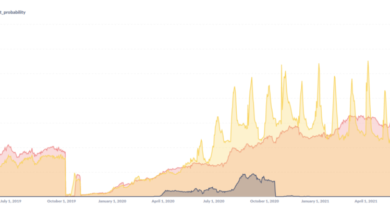OpenMeetings Flaws Allow Hackers To Execute Code And Hijack

Three vulnerabilities in Apache OpenMeetings potentially expose organizations to remote code execution attacks, cybersecurity firm Sonar warns.
A web conferencing application, OpenMeetings is used for online meetings, collaboration, and presentations, either as standalone software or as a plugin for Confluence, Jira, and other applications.
On Thursday, Sonar published information on three OpenMeetings bugs – CVE-2023-28936, CVE-2023-29023, and CVE-2023-29246 – that could allow malicious attackers to take over an administrator account and execute arbitrary code remotely.
According to Sonar, a logical flaw and a weak hash comparison can be exploited for account takeover. By triggering certain actions, an attacker could create a room invitation that does not have a room assigned to it, which allows them to access any user account, and then gain administrator privileges.
“Due to insufficient validation of configurable items, attackers can use the acquired admin privileges to inject a null-byte in one of the binary paths. This can be leveraged to run an arbitrary binary and thus results in remote code execution,” Sonar notes.
OpenMeetings binds meeting invitations to a specific room and to a user, and also creates a unique hash it then uses to retrieve invitation information.
The first of the three vulnerabilities allows an attacker “to enumerate valid invitation hashes and redeem them”, while the second bug can be exploited to gain unrestricted access to a session.
For that, the attacker can create an event, join the room, and then delete the event while present in the room, which turns it into a ‘zombie room’. Next, the attacker creates an invitation for the admin user to the room and, using a wildcard character, the attacker can redeem the invitation for themselves.
“Although an error is raised when redeeming the hash for such an invitation, a valid web session for the invitee with full permissions of this user is created. This web session can be accessed by using the session cookie in the server’s response,” Sonar explains.
The attacker can now modify the configuration of the OpenMeetings instance and, by injecting a null-byte in the configured path for the ImageMagic executable, they can gain remote code execution.
“When now uploading a fake image containing a valid image header followed by arbitrary shell commands, the conversion spawns /bin/sh with the first argument being the fake image, effectively executing every command in it,” Sonar notes.
A self-registered attacker can chain these vulnerabilities to hijack an instance and obtain remote code execution on the underlying server, the cybersecurity firm underlines.
All three vulnerabilities were resolved in Apache OpenMeetings version 7.1.0, which was released on May 9.
Related: Organizations Warned of Security Risk in Default Apache Superset Configurations
Related: Critical Apache Commons Text Flaw Compared to Log4Shell, But Not as Widespread
Related: Exploitation of New Citrix Zero-Day Likely to Increase, Organizations Warned
READ MORE HERE



